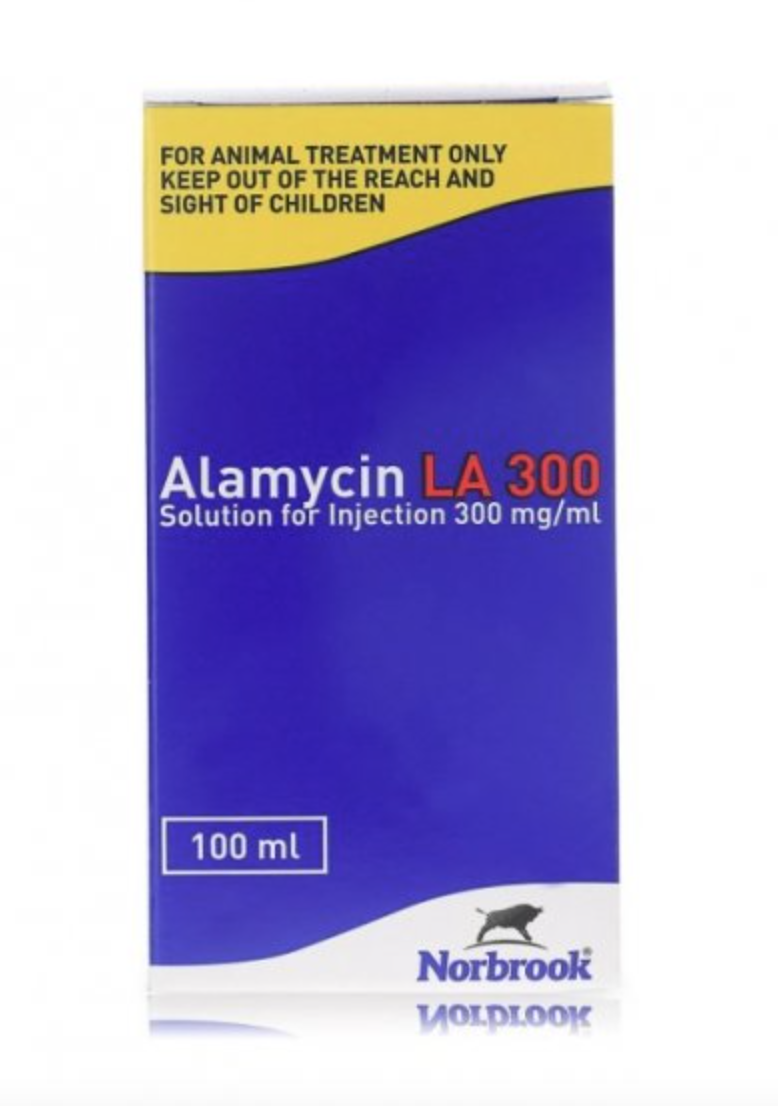Description
Alamycin LA 300mg/ml injection is used for the treatment of conditions caused by or associated with organisms sensitive to oxytetracycline including:
•Bordetella bronchiseptica
•Actinomyces pyogenes
•Erysipelothrix rhusiopathiae
•Pasteurella spp
•Staphylococcus spp
•Streptococcus spp
Certain mycoplasma, rickettsiae, protozoa and chlamydia are also sensitive to oxytetracycline.
Alamycin LA is indicated for the treatment and control of pasteurellosis, pneumonia, atrophic rhinitis, erysipelas, joint-ill, navel-ill, summer mastitis in cows, ovine keratoconjunctivitis (pink-eye) and enzootic abortion in sheep.
Use of the product should be based on susceptibility testing of bacteria isolated from the animal. If this is not possible, therapy should be based on local (regional, farm level) epidemiological information on susceptibility of the target bacteria.




